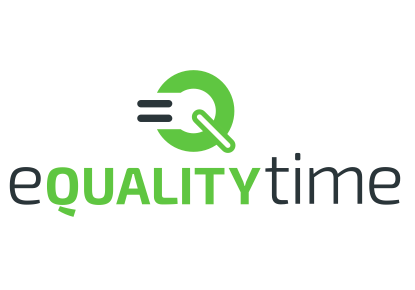Today, as part of our series on interviewing leaders in the third sector, we’re pleased to be interviewing the ever lovely Anne Fox from the Communication Trust. The Communication Trust is a coalition of almost 50 not-for-profit organisations that work together to support speech, language and communication. Anne has been running the Communication Trust since 2012 and she was kind enought to make some time to answer our questions 🙂
JR: So the communication trust was created in 2007 making it quite a young organisation. It’s certainly achieved quite a lot in that time – what do you think the trust’s most important work has been so far?
AF: I think overall what the Trust has done is raised the profile of how important it is to support children’s communication, especially those who have speech, language and communication needs (SLCN). We’ve done this in a range of ways – developing evidence, resources, running Hello – the national year of communication, running programmes to develop different models of practice and training, developing a qualification and training content for the workforce, taking up as many seats at policy tables as we could- but overall that’s been the impact- that more people are engaged with our key issues.
JR: An umbrella organisation presents it’s own challenges – do you find that you might not be as agile as the smaller organisations or do you think that you work much more as a focal point for your members?
AF: I don’t use the term umbrella organisation as personally I only use an umbrella when I need protection from the elements. Our members don’t come to us for protection they come for influence and reach. I prefer to see us a collective – where together we bring more to people – but everyone keeps their individual identities. We’re stronger together – we add strength to one another and I get a thrill and nods of recognition when I say I represent 50 organisations- it’s an impressive number! The Trust itself is small and agile – with a core team working on projects with partners in our membership and across different sectors of society. I think we do a pretty good job deciding when something is best done with or by our members. Certainly our members value our influencing record and the reach we help them have, especially those organisations who are highly specialist but haven’t huge reach or resource.
JR: I’ve got a particular interest in AAC (my little brother is a user) can you reassure us that the recent rounds of company take-overs and market withdrawals amongst the traditional manufacturers are being watched closely by the Communication Trust?
AF: The Trust is here to support all children to communication to the best of their ability. We do this in lots of ways but we work closely with our members when they hold better expertise in a specialist area. We have in our membership a number of AAC specialist organisations and services and Communication Matters as an overall collective. Two of the Trust’s programme board members, representing the consortium, are from organisations specialising in supporting children and young people who use AAC to talk. So though we don’t always get involved in the detail directly at the Trust we add our voice and weight to that of our members.
JR: What do you see as the big challenges of the next few years for the Communication Trust?
AF: In a nutshell – Money, power and influence. We have traditionally relied on statutory funding for a large proportion of our income though we’re increasingly moving into trading where we can. There’ll be an election in May 2016 which could lead to a change of Government which could lead to changes to successes in policy terms we’ve already secured with our members through really hard work and a shift in priorities which may not give us the agenda in policy and service developments which will best serve children and young people’s communication -and we compete for attention all the time.
But we love a challenge and we won’t stop what we’re doing while we’re needed.

